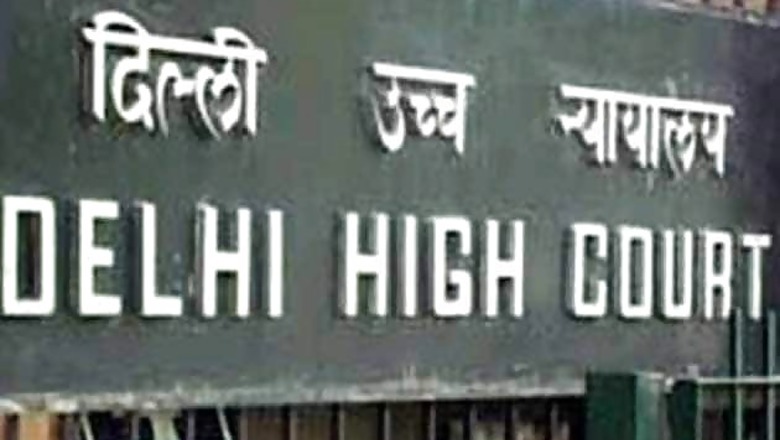
views
The remit of the court is to dispense justice and not to send messages to the society, the Delhi High Court has observed, while holding that prison is primarily for convicts and not for detaining undertrials to give a message to the public.
Justice Anup J Bhambhani made the remarks while granting bail to an accused in the North East Delhi violence which occurred in February this year and rejecting the argument of the police that granting of bail at this early stage may send an adverse message in the society and such crimes should not be allowed to happen in the national capital.
The judge said there cannot be a basis for denying bail to an accused if the court is otherwise convinced that no purpose in aid of investigation and prosecution will be served by keeping him in judicial custody.
“Prison is primarily for punishing convicts; not for detaining undertrials in order to send any 'message' to society. The remit of the court is to dispense justice in accordance with law, not to send messages to society.
“It is this sentiment, whereby the State demands that undertrials be kept in prison inordinately without any purpose, that leads to overcrowding of jails; and leaves undertrials with the inevitable impression that they are being punished even before trial and therefore being treated unfairly by the system,” the high court said.
It added that if at the end of a protracted trial, the prosecution is unable to bring home guilt, the State cannot give back to the accused the years of valuable life lost in prison.
On the other hand, an accused would of course be made to undergo his sentence after it has been awarded, after trial, it said.
The high court granted bail to Firoz Khan on furnishing of a personal bond of Rs 50,000 and two sureties of the like amount from his blood relatives and directed him not to leave the national capital without permission of the court.
According to the plea, he was taken into custody on April 3 in connection with an FIR lodged at Dayalpur police station in north east Delhi for alleged offences of rioting and mischief by fire or explosive substance with an intent to destroy a house under the IPC.
As per the complainant''s version in the FIR, on February 24, some rioters set his shop on fire and looted lakhs of rupees.
Khan sought bail on the ground that he was neither named in the FIR nor any material was collected during the investigation that would identify him as one of the perpetrators of the offences alleged in the FIR.
The prosecution opposed his bail saying that the accused has been identified by the complainant, a police constable who was present at the crime spot and a CCTV footage obtained from a nearby school.
After perusing the FIR and the complainant's statement, the high court noted that the complainant had neither named or otherwise identified the accused.
The high court, in its 14-page order, also said that while ordinarily it would not have entered into any discussion on the evidence at the stage considering bail, however, here is a case where a purported unlawful assembly of some 250-300 persons is alleged to have committed offences, of which the police have picked-up only two and one of them is accused Khan.
“In this peculiar circumstance, this court was compelled to sift the evidence only prima-facie and limited to cursorily assessing how the police have identified the applicant from that large assembly of persons. This court is conscious that 'judicial custody' is the custody of the court; and the court will be loathe to depriving a person of his liberty, in the court''s name, on the mere ipse-dixit of the State, when it finds no substantial basis or reason for doing so,” it said.
In February, clashes broke out in North east Delhi between the groups supporting and opposing the Citizenship (Amendment) Act, 2019.




















Comments
0 comment